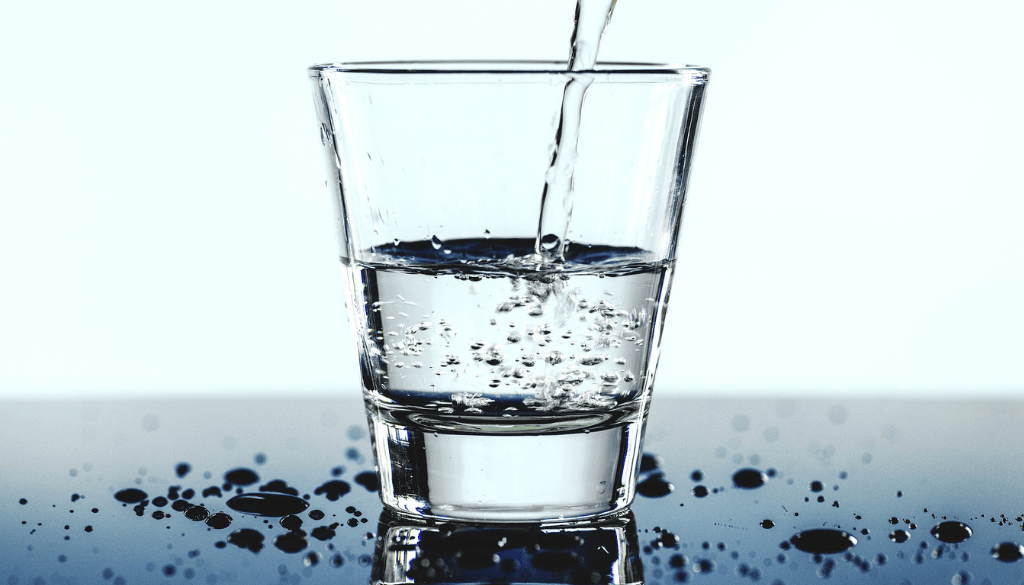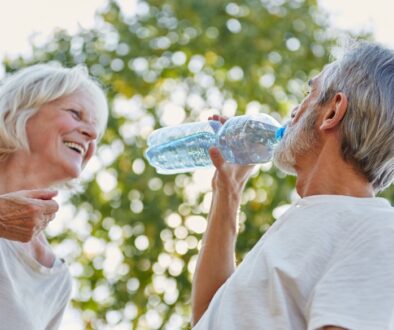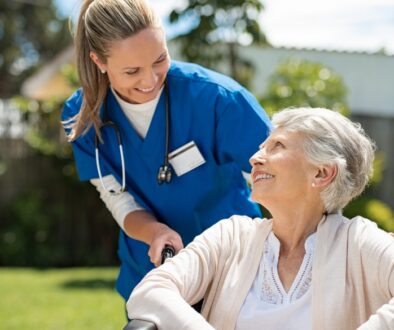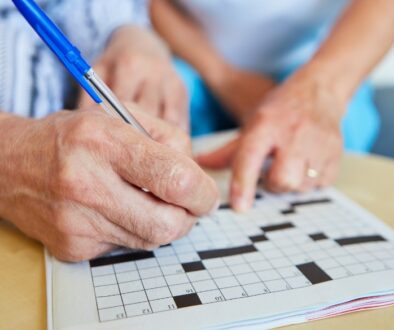7 Tips to Help Elderly People Avoid Dehydration
The early warning signs of dehydration can be difficult to detect in elderly people. For one, elderly adults don’t feel thirst as strongly as other adults, and thirst is a common early warning sign for mild dehydration.
Plus, there are a number of other reasons elderly adults face a greater risk of developing dehydration. First, total body water decreases with age (from 60% to 52% in men, and from 52% to 46% in women). Therefore, an adult over 60 years old has less water to lose before becoming dehydrated. Not to mention, chronic diseases, neurologic conditions and some prescription medications, to name a few, all can exacerbate dehydration quickly.
Risk Factors for Elderly Dehydration
There are several risk factors caregivers should recognize that heighten the risk of people developing dehydration. Understanding these risk factors and helping elderly people recognize them can lower the risk for dehydration. Factors include:
- Swallowing disorders caused by stroke, Parkinson’s disease or dementia
- Obesity
- Patients over 85 years old
- Being bedridden
- Diarrhea, vomiting or excessive sweating
- Having 5 or more chronic diseases
- Taking 5 or more prescription medications
- Diminished drinking due to fear of incontinence
Chronic dehydration in elderly people can wreak havoc on the body, although it’s not always readily apparent.
For instance, studies of elderly people have shown that dehydration increases the risk for constipation, urinary tract infection, respiratory tract infection, kidney stones and medicine toxicity. Plus, evidence shows that dehydration can lead to an increase in falls and longer stays in rehab facilities.
7 Tips to Help Prevent Dehydration in Elderly Patients
- Encourage people to drink small amounts of fluids throughout the day, rather than drinking large amounts all at once.
- Five 8-ounce glasses of water per day is a good bench for elderly people. Although everyone’s needs are different, studies have shown that elderly adults who drink 5 glasses of water experience lower rates of fatal coronary heart disease.
- Patients should avoid coffee, alcohol and high-protein drinks, especially in large quantities, because they have a diuretic effect. This leads to a greater loss of body water, which can cause or exacerbate dehydration.
- Make it easier for people to drink more fluids voluntarily. Encourage older adults to drink water, milk, or juice with every meal, and keep favorite beverages nearby.
- Caregivers should recognize the early warning signs of dehydration. Warning signs include fatigue, dizziness, thirst, dark urine, headaches, dry mouth/nose, dry skin and cramping.
- Remember that foods high in water, like fresh fruits, vegetables and some dairy products, can help people meet their daily water needs. Encourage elderlypeople to eat foods high in water.
- Fear of incontinence can diminish a person’s urge to drink voluntarily. Therefore, encourage people to drink more during the day and limit drinking before bed. Additionally, drinking small amounts of water throughout the day may help.
Source: DripDrop.com




